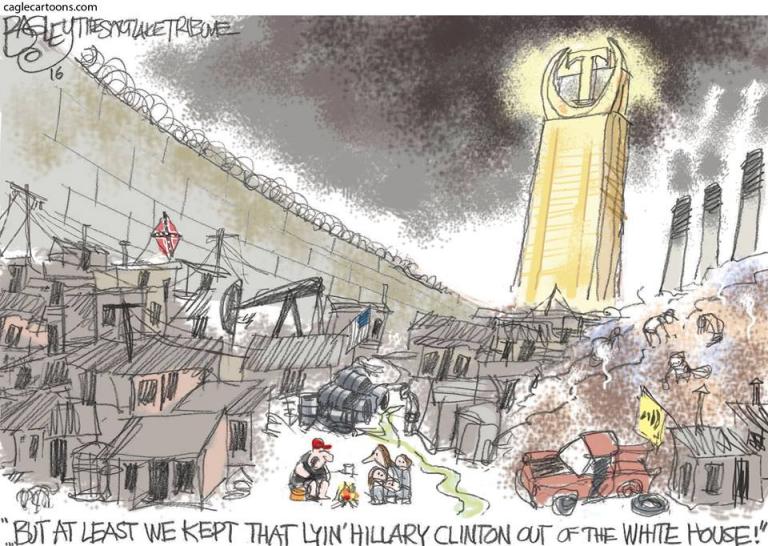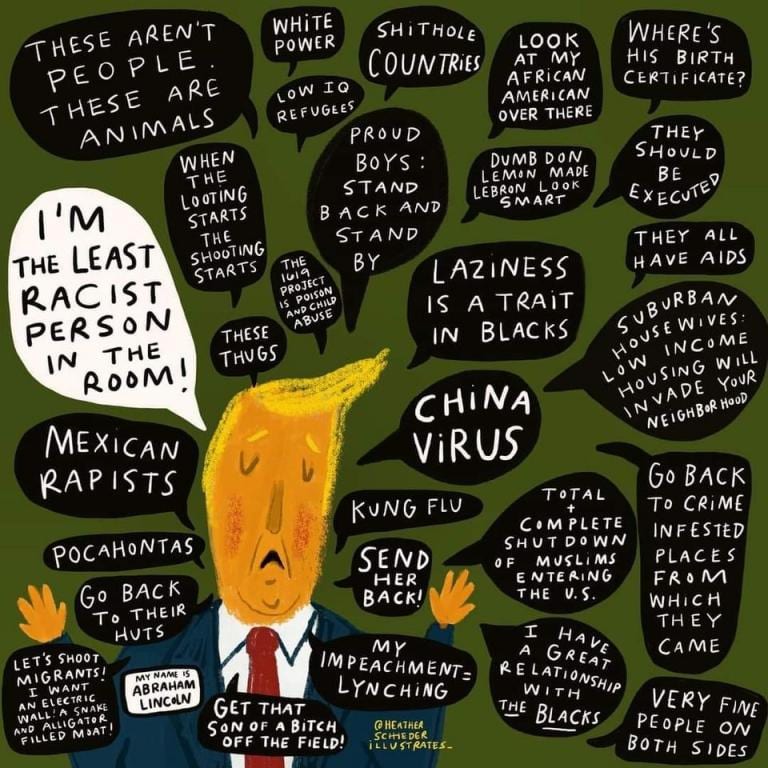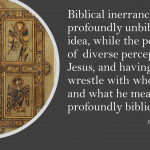When I made my syllabus for my course on Religion and Science Fiction, I did not intentionally schedule the discussion of post-apocalyptic and dystopian stories for the class meeting immediately prior to election day 2020.
But it worked out perfectly.
We spent the class making lists of ways that the world could end. It was a very helpful exercise.
When we list and categorize things it usually makes things clearer, even if what needs to become clear is that things are unclear. In this case, it was soon recognized that the end of humanity does not necessarily go hand in hand with the end of our planet. Science fiction has imagined countless ways in which humanity could be destroyed or destroy itself without the entire Earth ceasing to be, but also conversely plenty of examples of humanity surviving the destruction of the entire planet that gave rise to our species’ existence. We talked about natural disasters and human-caused ones, alien invasions and pandemics, and a whole host of other scenarios. We then moved on to scenarios in which humanity survives but things are much, much worse than they are now. While election and government made the list, it soon became clear that we can imagine things being even worse than they are at present, or are likely to be in our near future. None of us has lived in a time when we so genuinely feared that an upcoming election in our democratic country might be followed either by a refusal of the president to surrender power, or by violence on the part of citizens outraged by the result and convinced their candidate did not win due to some conspiracy and tampering with the process. It is a hard time to face. Recognizing the likelihood that humanity will survive what unfolds in the coming weeks is genuinely encouraging.
In some ways it was looking to the future that was the least comforting part of the course. Our last list that we compiled together was about what might survive a catastrophe and how. Among the assigned readings was Walter Miller’s short story “A Canticle for Leibowitz.” (The story became part of a novel, which we did not read the rest of.) The audiobook appears to be on YouTube!
https://www.youtube.com/watch?v=Pg-BxeON9dE
It is easy to say “let’s write down instructions on how to rebuild civilization if it collapses.” But where do you write it, and on what? Paper is surprisingly durable yet also highly flammable. If someone had wanted to take such precautions just a couple of decades ago they would have put this valuable information on a floppy disk, and that tells us all we need to know about the challenges that face us.
Thinking about dystopian futures through science fiction is helpful in relation to the area I started out in, teaching biblical studies. Fathoming how anyone could support slavery, the subjugation of women and treating them as property, child sacrifice, and so many other things can seem impossible. Yet our forebears like our descendants (referring to the near future) were or will be human like us. It is only the harshness of circumstances that lead people to imagine and do that which horrifies us. That doesn’t justify what was done in the past any more than in the future. But it does help us to understand, which is crucial to recognizing that the things that horrify us in the past could happen again under the right circumstances. There is no magic formula or sure-fire roadmap that will take us to a utopian future or even merely a better one. Studying dystopias doesn’t guarantee that we will avoid them. But without reflection, and without fostering commitment to values that we can hold as more important even than our own individual, ethnic, cultural, or national survival, our chances are much bleaker.
Dystopian fiction, along with its somewhat rarer inverse counterpart utopian fiction, both serve a common goal, one that is comparable to the role of prophecy and apocalyptic in ancient societies. One provides a vision of a future that it calls us to avoid, the other offers a vision that we are to strive to see realized.
You will notice that I have not focused here on the upcoming election. That was also true of the class. Societies have survived worse than Trump. Reflecting on this topic can make us more downhearted or more optimistic. The big fear if Trump is reelected is that issues that threaten our species in much greater ways, such as climate change, will fail to be addressed. The big fear if he is not reelected is that his supporters who were told to “stand back and stand by” will take up arms believing his unsubstantiated lies about the electoral process. But in a sense the dystopia we’ve built for ourselves, like all dystopias, is one that emerges from utopian aims. There is no way to construct a democratic process of voting that involves a population the size of that of the United States that is transparent. People and systems must be trusted to collect, tally, and report. The heart of our nation’s decline and our world’s current peril is that we do not trust one another. The only way we can ever hope to address that, I think, is if the majority of us can recognize that this is not because our opponents are thoroughly unlike us in their dishonesty and deceit, but because we know we are all capable of such things and yet know that most of us at least long to be better and surrounded by others who are better than the worst we are capable of. The current administration has taken the maligning of opponents and fostering of distrust to incredible heights, but no political party, religion, or nation is in a position to cast the first stone. The challenge is whether we will continue the self-defeating pursuit of self-interest that makes all efforts ultimately dystopian in their outcome, or will seek to build something better through the much more difficult (but ultimately more rewarding) process that entails.
There have been countless articles and cartoons about Trump’s America as dystopia. Ben Trollinger suggested that we always get the dystopia we deserve. John Scalzi wrote about how Trump has made it hard to be a science fiction author. Trump using tear gas on protesters led to headlines mentioning dystopia. Nicholas Goldberg emphasized that simply removing Trump from office doesn’t eliminate all the dystopian aspects of our present circumstance, and in another article he makes comparisons to specific science fiction novels and films. John Feffer said in April that we’d reached “peak Trumpian dystopia” which seems worrying looking back at the end of October. Vulture asked “Is the Present Worse than Fictional Dystopias?“ (Yes, they asked about the present and not about the president, just to be clear.) As for cartoons, here is one from not long after the last election that seems worth revisiting:

This cartoon really made an impression on me:

As one commenter said in response to the above, Donald Trump would not be the least racist person in a room even if he were the only person in the room. There is a need to pursue a different vision, not because of a different but equally partisan aim, but because what we need to pursue is the overcoming of racism and mutual demonization altogether if we are to build a future. Our hopes certainly depend on it. Our species’ survival might as well.













